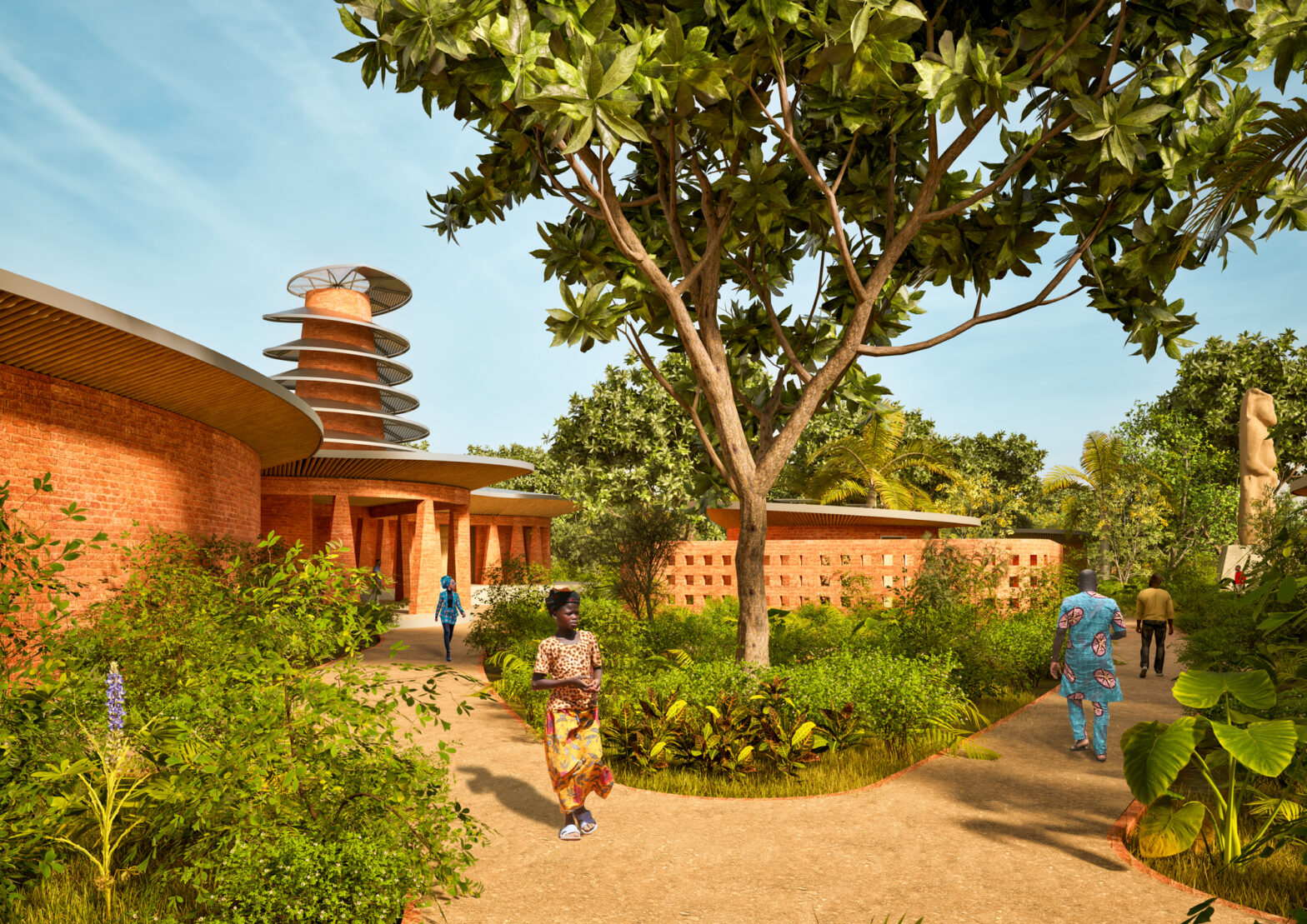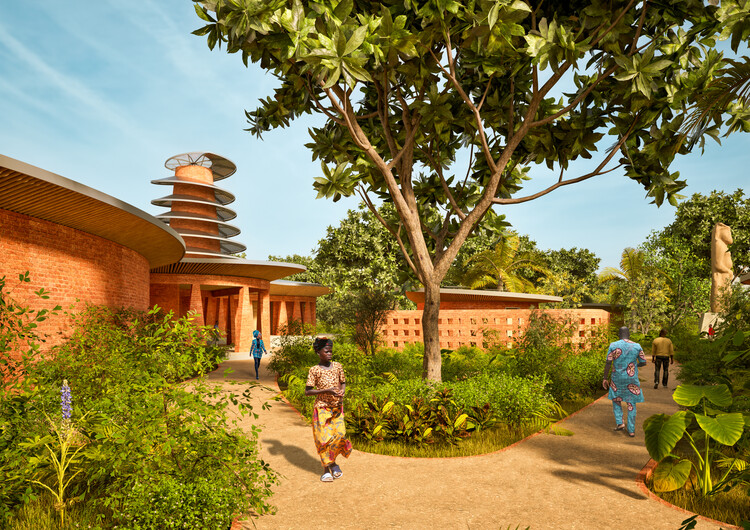
Kéré Architecture has unveiled a draft master plan and series of buildings dedicated to the cultural and spiritual heritage of the Ewé people in the city of Notsé, Togo. Commissioned by the Kothor Foundation, the center includes a sanctuary, several temples, a large open-air amphitheater, as well as cultural functions such as exhibition halls, an auditorium, restaurants, and a reconstruction of the ancient royal palace of the Ewé Kingdom. The project, Francis Kéré's first in Togo, began construction in October 2024 and is scheduled to be completed in February 2026.
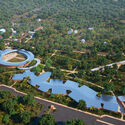
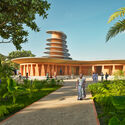
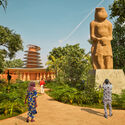
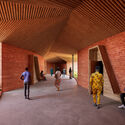

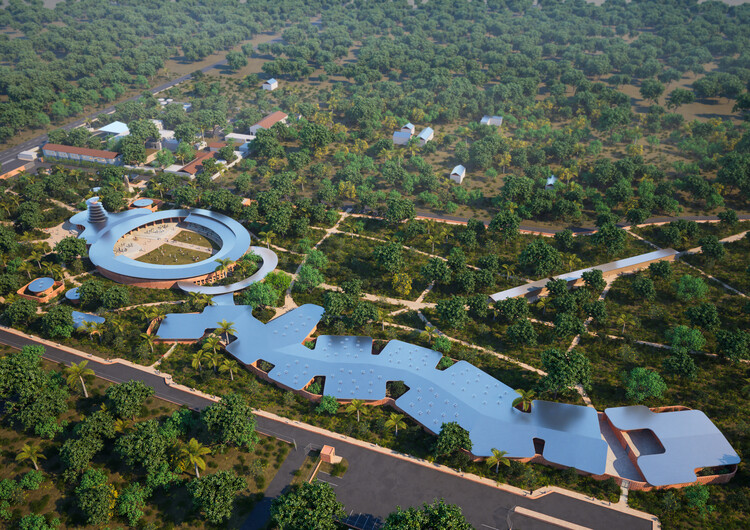
The Center Des Cultures et Spiritualités Ewés aims to present the history, rites and traditions of the ancestors of the Ewé people. The complex is structured around the ruins of the Agbogbo Wall, a sacred site that was historically significant in the exodus of the Ewé people, and the Agbogbodzi Sanctuary, dedicated to their main deity. The history of the wall is marked by conflict, as it served as a means of containment but also as a protective barrier against threats from other tribes.
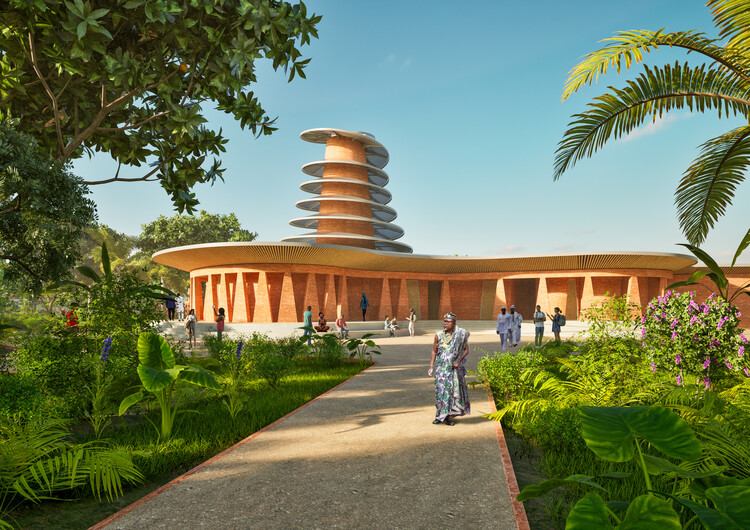
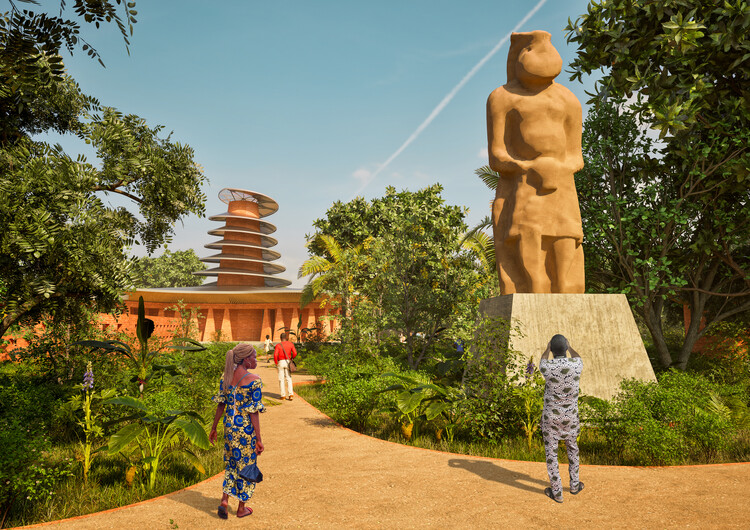
To connect with this complex heritage and sacred presence, Kéré Architecture proposes a spiral tower symbolizing the upward connection to divinity and ancestors. Low-rise buildings arranged in a flowing pattern meander through the landscape, interspersed with naturally ventilated terraces and plantings, respecting the existing topography and promoting sustainable design principles.
Related article
Kéré Architecture breaks ground for a new daycare center in Munich
The design features numerous important architectural elements that reflect Ewé culture. The exhibition halls, lit by a carefully designed system of natural light wells, showcase both historical artifacts and contemporary works, preserving and celebrating Ewé traditions. An iconic gate inspired by the traditional Ewé stool – a symbol of royal power – serves as the main entrance. The incorporation of traditional building materials and motifs combined with modern, sustainable architectural practices ensures a respectful and harmonious blend of past and present.
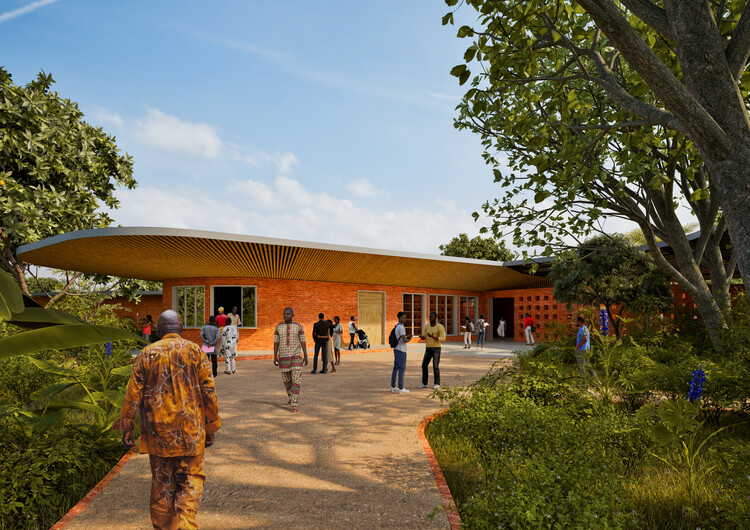
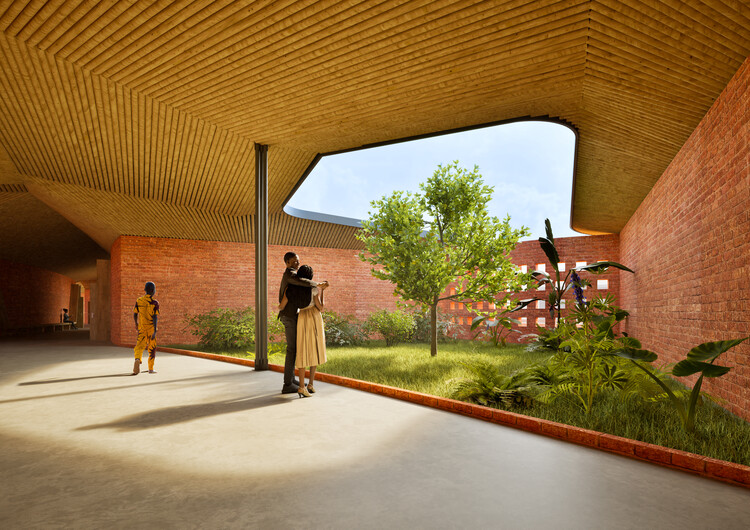
It is a joy to see how the ideas and techniques embedded in my work have now become “socially acceptable” and widely accepted by people on the continent. The center will demonstrate how architecture can serve as a catalyst for communities to celebrate their cultures. – Francis Kere
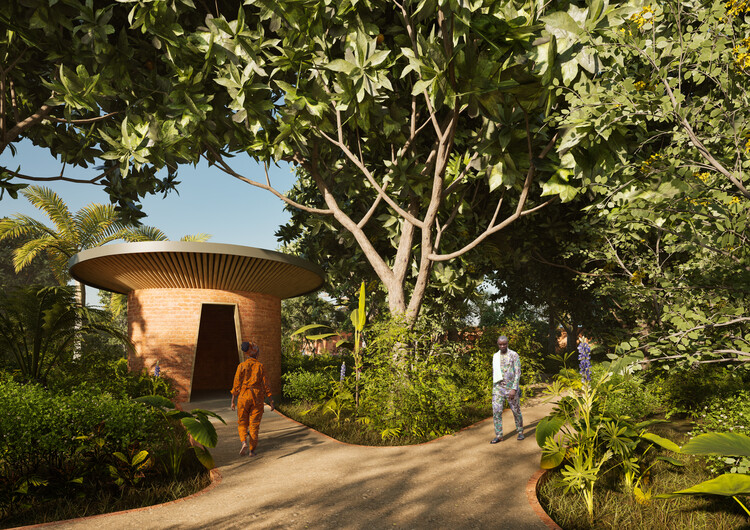
Other Kéré Architecture projects currently underway in West Africa include the National Assembly of Benin, the Goethe Institute in Dakar and a mausoleum for Thomas Sankara in Ouagadougou, the capital of Burkina Faso. Francis Kéré has received numerous prestigious awards for his sustainable and culturally sensitive architecture, including the Pritzker Architecture Prize 2022 and the Praemium Imperiale for Architecture 2023.
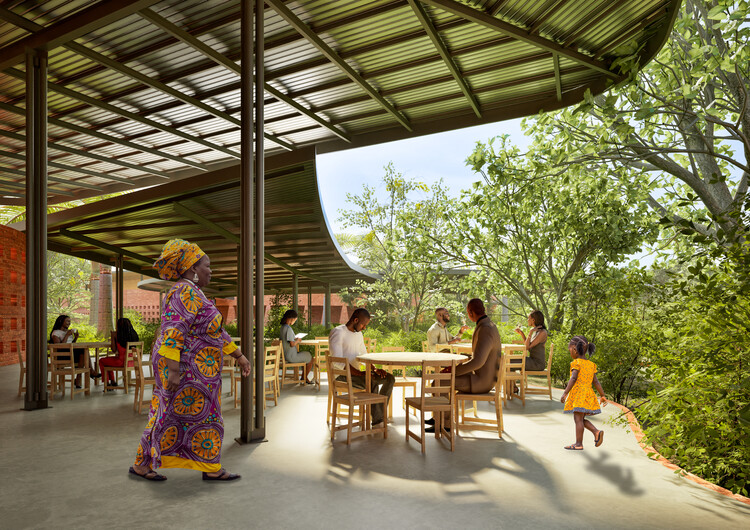
Project evidence:
- Architect: Diébédo Francis Kéré, Kéré Architecture
- Design team: Jaime Herraiz Martínez, Andrea Maretto, Léa Sodangbe
- Engineering team: Nataniel Sawadogo, Jean Sawadogo, Moïse Kéré Architecture SARL (Ouagadougou, Burkina Faso)
- Contributors: Jeanne Autran-Edorh, Philippe Chazée, Yonas Tukuabo, Leonne Voegelin, Sika Azamati
- Project management: Jaime Herraiz, Nathaniel Sawadogo, Almadjai Boukari
- Employees: APAVE BCT (Burkina Faso), Ingenovatech (Burkina Faso)
- Customer: Fondation Kothor / LA GMA SA
